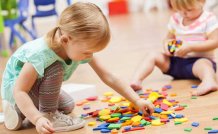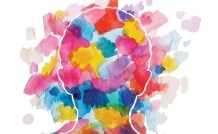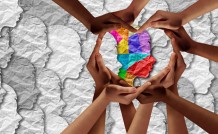Online Class: Early Childhood Development 101

no certificate
with CEU Certificate*
-
9Lessons
-
20Exams &
Assignments -
4,431Students
have taken this course -
8Hours
average time -
0.8CEUs
Course Description
Child development may be defined as the various changes that occur for humans (e.g., physical, cognitive, social, and emotional) between birth and adulthood. Child development may also examine changes that occur prenatally (i.e. before birth). The changes that happen before birth and in the early years of life impact us all and shape who we become as adults. Early child development often focuses on the first five years of life.
Child development is a multidisciplinary field which relies on knowledge from several other fields such as psychology, sociology, human development, and the medical field. The study of child development is important to improve outcomes for children and in turn, society as a whole. The following course provides key knowledge of this field. Each lesson includes and introduction, a lesson which contains the major aspects of each topic area, a conclusion section which summarizes the lesson, and a quiz on the lesson. Some lessons also contain helpful online resources for learning more about early childhood development. After taking this course, a person should be familiar with the basics of the field of child development, the four key domains of child development, developmental milestones, and development disabilities.
Course Motivation
What is child development?
Child development may be defined as the various changes that occur for humans -- physical, cognitive, social, and emotional -- between birth and adulthood. Child development may also examine changes that occur prenatally (before birth). The changes that happen before birth and in the early years of life impact us all and shape who we become as adults. Early child development often focuses on the first five years of life.
The study of child development is often broken down into major domains of development. These include physical, cognitive and social-emotional development. In addition, language/literacy development and identity development are often studied within child development. The chart below summarizes each of these domains.
|
Physical development |
Biological development of the human body and skills that are performed using the body
|
Examples of physical development in childhood: growth of limbs, development of the brain
Examples of skills performed related to physical development: learning to crawl, walk, and run |
|
Cognitive development |
Development of thinking processes that occur for human beings |
Examples of cognitive development in childhood: children performing mental reasoning and making decisions based on their reasoning |
|
Social-emotional development |
Development of the skills used to form and maintain human relationships and connectedness; development of emotional skills |
Examples of social-emotional development in childhood: babies developing the ability to self-soothe (e.g., thumb sucking); children learning to share toys with others |
|
Additional domains: |
|
|
|
Language & literacy development |
Development of the skills used to communicate with others through languages, as well as the ability to read and write |
Examples of language and literacy development in childhood: learning to speak the native language of one's parents; a deaf child learning sign language; a young child learning to read |
|
Identity development |
Development of one's sense of self; identity may develop around one's gender, culture, and morals |
Examples of identity development in childhood: a child learning what behaviors are considered "right" vs. "wrong" (i.e., acceptable vs. unacceptable) within their culture; a child learning what behaviors are expected based on their gender and using this knowledge to guide their actions |
Why does child development matter?
The main reason that child development is a field of study is to improve child outcomes. There are many uses for the knowledge generated from the study of child development. For one, child development knowledge can be used to inform parenting practices and optimize outcomes for individual children. For example, the study of infants generates knowledge to help parents learn what to expect during their child's first year of life and interpret infant behaviors, like crying and eye-gazing. Understanding a baby's behaviors helps parents better meet the needs of their children and improves outcomes for children.
Another use of the knowledge generated from the study of child development is to inform the practices used by child care professionals, such as child care providers, teachers, social workers, child psychologists, and pediatric doctors and nurses. For example, child development studies help define the normative physical changes that should occur for children, which enables medical and mental health professionals to detect the presence of development disabilities and disorders, like autism.
The knowledge generated from the study of child development is also used to inform public policy. Policies that affect children may operate on the micro level (e.g., local community regulations) or on the macro level (e.g., federal legislation). For example, in the U.S., federal law makers have used the results of child development studies to shape educational programs.
How is child development studied
Child
development is studied using major theories of the broader field of
human development and scientific research, which are guided by these
theories. The concept of "nature versus nurture," which refers to the
idea that all humans are influenced by both nature-based factors (e.g.,
genetics) and nurture-based factors (e.g., home environment in which one
is raised), is one that underlies the study of child development. The
theories used in child development all vary in the degree to which they
emphasize heredity versus environmental influences.
- Completely Online
- Self-Paced
- 6 Months to Complete
- 24/7 Availability
- Start Anytime
- PC & Mac Compatible
- Android & iOS Friendly
- Accredited CEUs

Course Lessons
Lesson 1: Basics of Child Development
 Lesson 1 Video
Lesson 1 Video Lesson discussions: Reasons for Taking this Course
Lesson discussions: Reasons for Taking this Course Complete Assignment: An Introduction
Complete Assignment: An Introduction Complete: Lesson 1 Assignment
Complete: Lesson 1 Assignment Assessment: Lesson 1 Exam
Assessment: Lesson 1 Exam
Lesson 2: Prenatal Development
 Lesson 2 Video
Lesson 2 Video Complete: Lesson 2 Assignment
Complete: Lesson 2 Assignment Assessment: Lesson 2 Exam
Assessment: Lesson 2 Exam
Lesson 3: Infant Development
 Lesson 3 Video
Lesson 3 Video Complete: Lesson 3 Assignment
Complete: Lesson 3 Assignment Assessment: Lesson 3 Exam
Assessment: Lesson 3 Exam
Lesson 4: Physical Development
 Lesson 4 Video
Lesson 4 Video Complete: Lesson 4 Assignment
Complete: Lesson 4 Assignment Assessment: Lesson 4 Exam
Assessment: Lesson 4 Exam
Lesson 5: Cognitive Development
 Lesson 5 Video
Lesson 5 Video Complete: Lesson 5 Assignment
Complete: Lesson 5 Assignment Assessment: Lesson 5 Exam
Assessment: Lesson 5 Exam
Lesson 6: Emotional and Social Development
 Lesson 6 Video
Lesson 6 Video Complete: Lesson 6 Assignment
Complete: Lesson 6 Assignment Assessment: Lesson 6 Exam
Assessment: Lesson 6 Exam
Lesson 7: Language and Literacy Development
 Lesson 7 Video
Lesson 7 Video Complete: Lesson 7 Assignment
Complete: Lesson 7 Assignment Assessment: Lesson 7 Exam
Assessment: Lesson 7 Exam
Lesson 8: Developmental Milestones
 Lesson 8 Video
Lesson 8 Video Complete: Lesson 8 Assignment
Complete: Lesson 8 Assignment Assessment: Lesson 8 Exam
Assessment: Lesson 8 Exam
Lesson 9: Developmental Disabilities
 Lesson 9 Video
Lesson 9 Video Lesson discussions: How would you rate this course?; Program Evaluation Follow-up Survey (End of Course); Course Comments
Lesson discussions: How would you rate this course?; Program Evaluation Follow-up Survey (End of Course); Course Comments Complete: Lesson 9 Assignment
Complete: Lesson 9 Assignment Assessment: Lesson 9 Exam
Assessment: Lesson 9 Exam Assessment: The Final Exam
Assessment: The Final Exam
Learning Outcomes
- Describe brain development in early childhood.
- Describe the developmental connections made in early childhood.
- Describe development in infants.
- Describe developments in early language and literacy.
- Describe ways to communicate with your baby.
- Summarize cognitive development from infant to early childhood.
- Describe the emotional and social development of children.
- Summarize the effects of maltreatment on early brain development.
- Describe developmental issues of premature infants.
- Recognize and describe developmental disabilities in children.
- Demonstrate mastery of lesson content at levels of 70% or higher.
Additional Course Information

- Document Your Lifelong Learning Achievements
- Earn an Official Certificate Documenting Course Hours and CEUs
- Verify Your Certificate with a Unique Serial Number Online
- View and Share Your Certificate Online or Download/Print as PDF
- Display Your Certificate on Your Resume and Promote Your Achievements Using Social Media

Choose Your Subscription Plan
No Certificate / No CEUs
This course only
| Includes certificate | X |
| Includes CEUs | X |
| Self-paced |

|
| Instructor support |

|
| Time to complete | 6 months |
| No. of courses | 1 course |
Certificate & CEUs
This course only
| Includes certificate |

|
| Includes CEUs |

|
| Self-paced |

|
| Instructor support |

|
| Time to complete | 6 months |
| No. of courses | 1 course |
Certificates & CEUs
Includes all 600+ courses
| Includes certificate |

|
| Includes CEUs |

|
| Self-paced |

|
| Instructor support |

|
| Time to complete | 12 Months |
| No. of courses | 600+ |
Certificates & CEUs
Includes all 600+ courses
| Includes certificate |

|
| Includes CEUs |

|
| Self-paced |

|
| Instructor support |

|
| Time to complete | 24 Months |
| No. of courses | 600+ |
Student Testimonials
- "The course gave me light into many areas of early childhood development which was quite unknown for me. This was a very informative course.The learning materials were really good." -- Aswathy G.
- "It was an exceptionally helpful course because I have witnessed and endured my own form of mental/ emotional disabilities. I am fortunate to be a part of the informative courses that make me a better person and teacher." -- Chante B.
- "Instructor is knowledgeable and puts her students first, all the email correspondence was answered and timely. Thank you." -- Leela G.
- "The course was easy to access and the lessons were organized and easy to follow." -- Deanna T.
- "The instructor was very nice she put nice comments about my work." -- Jessica F.
- "Wonderful course thank you so much for taking the time to do all this." -- Michael B.
- "I enjoyed taking this course. I did learn alot." -- Renee H.
- "The instructor was very supportive." -- Cindy N.
- "I think in general it was great!" -- Luz G.
- "Wonderful course and instructor." -- Marta C.
Related Courses
-
 21 hours
2.1 CEUs
Ultimate Parenting Course Bundle
$135.00
21 hours
2.1 CEUs
Ultimate Parenting Course Bundle
$135.00
-
 3 hours
0.3 CEUs
Single Parenting 101
$95.00
3 hours
0.3 CEUs
Single Parenting 101
$95.00
-
 11 hours
1.1 CEUs
Special Education 101
$95.00
11 hours
1.1 CEUs
Special Education 101
$95.00
-
 5 hours
0.5 CEUs
Child Safety for Parents
$95.00
5 hours
0.5 CEUs
Child Safety for Parents
$95.00
-
 4 hours
0.4 CEUs
Second Grade Curriculum
$95.00
4 hours
0.4 CEUs
Second Grade Curriculum
$95.00
-
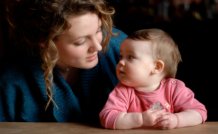 3 hours
0.3 CEUs
Babysitting 101
$95.00
3 hours
0.3 CEUs
Babysitting 101
$95.00
-
 7 hours
0.7 CEUs
Understanding Learning Styles
$95.00
7 hours
0.7 CEUs
Understanding Learning Styles
$95.00
-
 7 hours
0.7 CEUs
Solving Classroom Discipline Problems
$95.00
7 hours
0.7 CEUs
Solving Classroom Discipline Problems
$95.00
-
 9 hours
0.9 CEUs
Watercolor Painting 101
$95.00
9 hours
0.9 CEUs
Watercolor Painting 101
$95.00
-
 14 hours
1.4 CEUs
Acrylic Painting 101
$95.00
14 hours
1.4 CEUs
Acrylic Painting 101
$95.00
-
 4 hours
0.4 CEUs
How To Be a Substitute Teacher
$95.00
4 hours
0.4 CEUs
How To Be a Substitute Teacher
$95.00
-
 5 hours
0.5 CEUs
Building Children's Reading Skills
$95.00
5 hours
0.5 CEUs
Building Children's Reading Skills
$95.00
-
 12 hours
1.2 CEUs
Child Abuse Recognition, Investigation, and Protection
$110.00
12 hours
1.2 CEUs
Child Abuse Recognition, Investigation, and Protection
$110.00
-
 9 hours
0.9 CEUs
Reading Comprehension 101
$95.00
9 hours
0.9 CEUs
Reading Comprehension 101
$95.00
-
 7 hours
0.7 CEUs
How to Teach Reading Fundamentals
$95.00
7 hours
0.7 CEUs
How to Teach Reading Fundamentals
$95.00
-
 3 hours
0.3 CEUs
First Grade Curriculum
$95.00
3 hours
0.3 CEUs
First Grade Curriculum
$95.00
-
 10 hours
1.0 CEUs
Learning Disabilities: What You Need to Know
$95.00
10 hours
1.0 CEUs
Learning Disabilities: What You Need to Know
$95.00
-
 15 hours
1.5 CEUs
Western Calligraphy
$95.00
15 hours
1.5 CEUs
Western Calligraphy
$95.00
-
 3 hours
0.3 CEUs
Problem Solving Strategies
$95.00
3 hours
0.3 CEUs
Problem Solving Strategies
$95.00
-
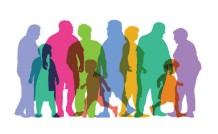 3 hours
0.3 CEUs
Childhood Obesity
$95.00
3 hours
0.3 CEUs
Childhood Obesity
$95.00
-
 8 hours
0.8 CEUs
Early Childhood Development 101
$95.00
8 hours
0.8 CEUs
Early Childhood Development 101
$95.00
-
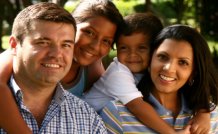 5 hours
0.5 CEUs
Basic Parenting 101
$95.00
5 hours
0.5 CEUs
Basic Parenting 101
$95.00
-
 7 hours
0.7 CEUs
Personality Development
$95.00
7 hours
0.7 CEUs
Personality Development
$95.00
-
 7 hours
0.7 CEUs
Attention Deficit Disorders: ADD and ADHD
$95.00
7 hours
0.7 CEUs
Attention Deficit Disorders: ADD and ADHD
$95.00
-
 5 hours
0.5 CEUs
Home Safety
$95.00
5 hours
0.5 CEUs
Home Safety
$95.00
-
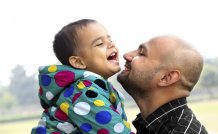 5 hours
0.5 CEUs
Positive Parenting Techniques
$95.00
5 hours
0.5 CEUs
Positive Parenting Techniques
$95.00
-
 17 hours
1.7 CEUs
Mixed Media Art
$95.00
17 hours
1.7 CEUs
Mixed Media Art
$95.00
-
 5 hours
0.5 CEUs
Building Self-Esteem in Children
$95.00
5 hours
0.5 CEUs
Building Self-Esteem in Children
$95.00
-
 6 hours
0.6 CEUs
How To Coach Youth Basketball
$95.00
6 hours
0.6 CEUs
How To Coach Youth Basketball
$95.00
-
 9 hours
0.9 CEUs
Autism Spectrum Disorders for Teachers
$95.00
9 hours
0.9 CEUs
Autism Spectrum Disorders for Teachers
$95.00


